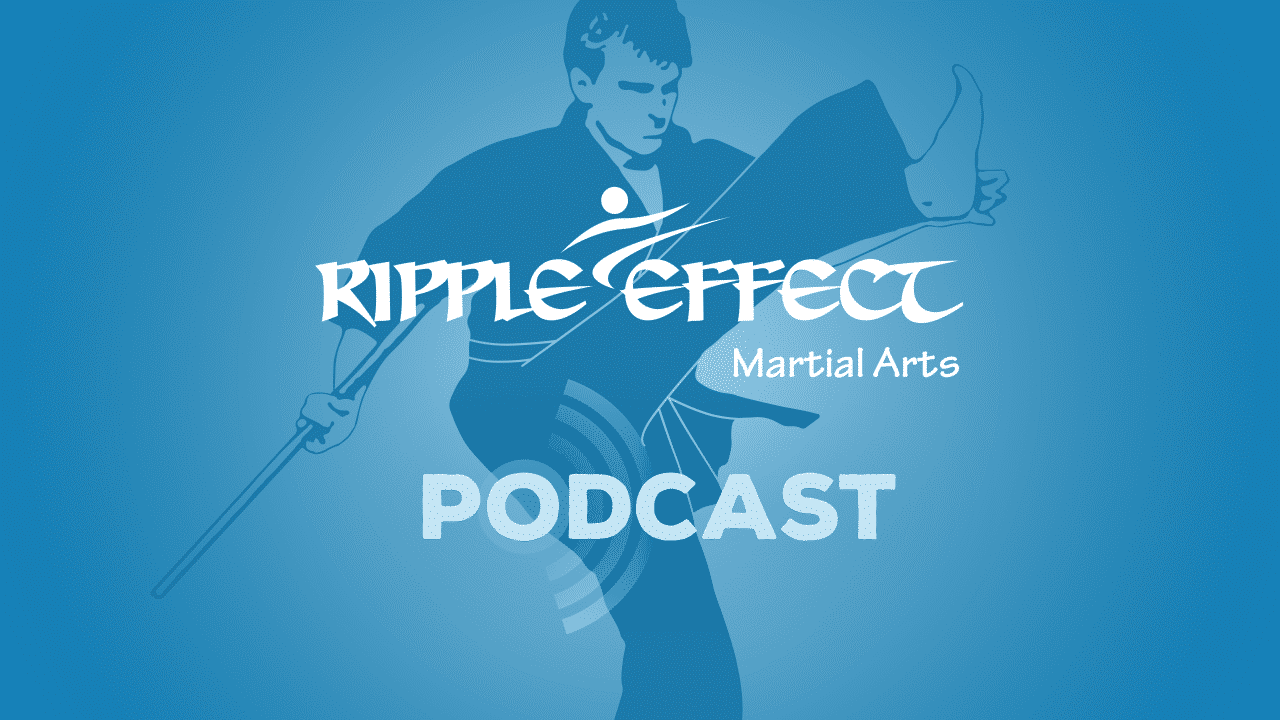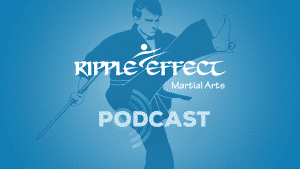You started martial arts when you were 10. What do you remember from your first experience?
I started training in Panama City, Florida, my hometown. It was at the very first martial arts school in our area that allowed children to train. My brother signed up first, then my mom and me. Then my dad was like I’m not going to sit on the sidelines and he signed up too.
My dad immediately wanted to be an instructor. It wasn’t long before he started his own martial arts school in Fort Walton Beach, Florida. It’s something the whole family started doing together, and now all these years later my father is seeing his grandkids instruct.
It seems that martial arts back then was different, more geared towards adults walking down dark alleys, needing to subdue muggers. Was it different training back in the day? in the Karate Kid era?
We opened our school a few years before that, in 1979, 1980. I think the movies did help shift the dynamic from fear to kids gaining confidence and discipline. That’s what The Karate Kid was all about. You can’t train in karate if you’re just out to hurt somebody else, bully people. You’re not going to compete in a karate tournament if you’re undisciplined. You’ve gotta get that discipline down.
Generally, parents are looking to enroll their kids in karate to get them into that discipline mode. Is that true in your experience?
When I was younger, talking about discipline in front of parents was difficult. But I learned to realize that parents want someone to tell their child to stand still, to focus, to pay attention. I say to the new kid in karate: “Sir, we can’t do our lesson until you stand at attention.” I encourage parents to do the same thing at home. Kids are usually very excited about doing a martial art, so there’s a lot of motivation for kids to do the right thing.
Parents tend to be amazed that we can get their child to sit still. They try it; but the reason that the kid is not complying, is because they have no reason to. There are no consequences for bad behavior. I tell parents that if you’re trying to correct a behavior, give your kids a consequence. There’s one warning, then the consequence. In karate class, the consequence is a time out. Kids don’t like missing out, so they correct that behavior. Parents should do the same thing at home.
Sometimes that’s the hard part. The parent has to be more disciplined than the child [laughs.]
Do the consequences ever escalate?
It depends on the child. Here at the martial arts school, if we have a child who’s being willfully disobedient, not just unfocused, we take away their belt. It’s a pretty severe consequence. They still have to come to class. But they can’t earn stripes for their belt. They can’t progress.
Sometimes it’s not taking away a privilege, but just not letting kids get under your skin.
Karate instructors are pretty good at that. They don’t get unnerved by unruly kids. And parents seem to really appreciate it.
The time when I see parents get the most upset is when kids show emotion in public. They throw a tantrum in the store, or break down because they lost the game. What I tell parents is to say to your kids: hold in the feeling, the emotion, till we get home. Then we can show the emotion and talk about it. And then make sure you give your kids that opportunity.
When it comes to disobedience in kids, what motivates a parent to get upset is that they’re embarrassed. Just remember, you’re not the first parent in the world to experience this. Everyone around you can appreciate that. So you just look around and say “Sorry, this is something we’re working on.”
Your kid may sob along behind you, but just let them sob along behind you. Every parent will be appreciative to hear that you’re working on it.
What are some things you remember about being a young kid, or raising your own kids, in the martial arts?
I always called my parents Mr. or Mrs. in our martial arts school, never Mom or Dad. I don’t know why I complied with that so easily [laughs]. When my kids started, it was really just the same. If you want to be a tae kwon do student, that’s what tae kwon do students do.
My daughter, now a 3rd-degree black belt, was 3 when she started. My husband—her dad—was the instructor. In one class she wasn’t paying attention, she was twirling around [laughs]. He went up and said “you need to listen,” and then “you have to go sit in time out.” It broke his heart, but he had to stay in instructor mode [laughs.]
As I look back on my childhood with my parents in martial arts we had a great time. It was so great to do it together. All those lessons, being in front of people, being afraid, losing and crying in front of people, we learned about all that together.
When did you realize the benefit of the discipline that your martial arts upbringing imposed on you? Did you see the benefit in it?
Yes. You have to teach kids how to do jumping jacks, so why shouldn’t we have to teach them about sharing, for example? My dad was very hardcore. There were lots of pushups [laughs.] I used to be so mad at my dad for making us do all these push ups. That’s what was going through my mind at the time. I didn’t tell him that until years later [laughs.]
When I was in high school, seeing some of my friends get in trouble with risky behaviors, I felt so fortunate, I would say saved even, that I had been brought up with that discipline in the martial arts.
What’s the key lesson or benefit of the marital arts for parents?
I think it teaches that failure isn’t the worst thing that can happen. Passing when you’re not ready is a much worse thing. Martial arts teaches kids how to learn from failure. I didn’t win every tournament. But I never quit.
I want the parents to get that lesson along with the child. When a kid gets in front of a room of hundreds of people and tries to break a board, he or she has that support, and if they don’t give up, they’re going to break that board. They struggle, they fail. But then they succeed. And they learn that lesson, that if they don’t give up, if they don’t quit, they’ll succeed. It’ll happen again and again, maybe not with a board, but with a test, or with a relationship. Black belt training teaches kids to never quit.
I just turned 53 last week, and I’ve been part of the martial arts, the black belt process, for 43 years. I never get tired of seeing kids go through that process, from white belt to black belt. I’ve never had a student fail a test and not come back to earn their black belt. I love it. It’s a beautiful thing.


